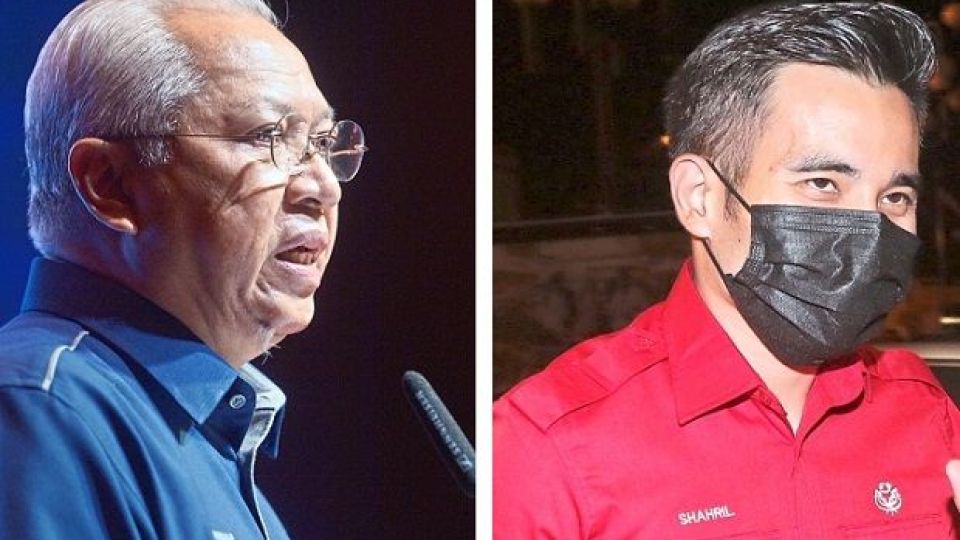September 6, 2022
PETALING JAYA – The calls are growing loud to revive Malay-Muslim cooperation under Muafakat Nasional ahead of the 15th General Election (GE15), with PAS being the most vociferous.
However, there has been lukewarm response from Umno’s top leaders, while Parti Pribumi Bersatu Malaysia (Bersatu) has yet to make a decision.
At the 68th PAS muktamar (general assembly) on the weekend, the party declared that the Muafakat pact – made in 2019 between the Islamist party and Umno – was still intact and might feature in the upcoming GE15.
Umno information chief Shahril Hamdan was unimpressed.
He said there had been many attempts to reconcile with PAS since the Umno general assembly in 2020, but PAS had repeatedly issued strongly worded statements against Umno, especially recently.
“Umno is not looking for enemies, but we are being treated as one.
“Any decision on this will be made by the party’s top five leaders or the supreme council,” he said.
On Sept 3, Umno had seemingly shut the door on the Muafakat pact, saying it was time to move on without PAS.
Umno president Datuk Seri Ahmad Zahid Hamidi said the collaboration PAS offered was a superficial one and did not take into account the needs of the people.
However, senior Umno leader Tan Sri Annuar Musa, who is Ketereh MP, believes Umno should continue working with PAS.
He said PAS had adopted a strategic decision to continue cooperating with Umno and Barisan Nasional at the muktamar.
“Strategies for GE15 should be effective, not based on emotions or self-interest.
“We must have a winning formula. Expediting the election for any other reason would be a kamikaze move for Umno,” he said, adding that Umno’s top priority was Malay unity.
The country’s political situation would only be stable if the core and pillars were strong, he said.
“The core must be based on solid Malay politics,” added the Cabinet minister.
“Umno should not enter GE15 without strengthening Malay unity, let alone try to go solo.”
There seems to be some PAS-Umno talks going on behind the scenes.
PAS secretary-general Datuk Seri Takiyuddin Hassan has indicated that talks are ongoing both at official and unofficial levels, although Umno deputy president and election director Datuk Seri Mohamad Hasan has denied any such engagement.
After forming Muafakat in 2019, ties between Umno and PAS became strained after PAS joined the Bersatu-led Perikatan Nasional coalition.
PAS also contested against Barisan in the Johor and Melaka state elections under the Perikatan banner.
However, PAS was now planning to bring Umno and Bersatu together under a revived Muafakat Nasional, said Dr Azmi Hassan, senior Fellow at the Nusantara Academy for Strategic Research.
“What I can see is that such cooperation is not likely to happen before GE15.
It may happen if a coalition needs allies to become a dominant force after the elections.”
Azmi said PAS had not completely shut its doors to Umno.
“I think it’s an implicit message that PAS could be the best party to work with after GE15. That is what its grassroots desire. Some are still keen to work with Umno,” he added.
Another analyst said the all Malay-Muslim alliance touted by PAS would not have much impact as it had already happened when they formed the government in February 2020.
Prof James Chin of the Asia Institute at the University of Tasmania, Australia, said the Islamist party wanted to form a coalition just to solidify its position as a part of the government.
“We already have a Malay-Muslim government (now) when the three big parties (Bersatu, Umno and PAS) got together after toppling the Pakatan Harapan administration in 2020.
“This is an all Malay-Muslim government, and that is what PAS is trying to do … keep its position intact in the government,” he said.
Prof Chin said PAS’ idea of unity was odd as it only referred to a union of Malay-Muslims while disregarding others.
“When they talk about unity in Malaysia, it’s very weird because it’s only among the ‘ummah’ and does not include non-Muslims or people of Sabah and Sarawak,” he said.
He said the non-Muslim community had always held negative views of PAS as they believed the party would marginalise non-Malays.
“The (racial) tension is already there. What we’re seeing now is the overall rise of political Islam across the country.
“The rise is not only in PAS but also in Bersatu and Umno.
“The moment the religious card is brought into politics, everything becomes irrational,” he added.
Prof Dr Sivamurugan Pandian of Universiti Sains Malaysia said any such cooperation would only work if all parties were willing to make compromises and sacrifices.
“Looking at the Melaka and Johor state elections, PAS and Umno are not willing to work on seat negotiations.
“If seat allocation is a stumbling block, then we may see three or more corner fights (in GE15),” he said.

